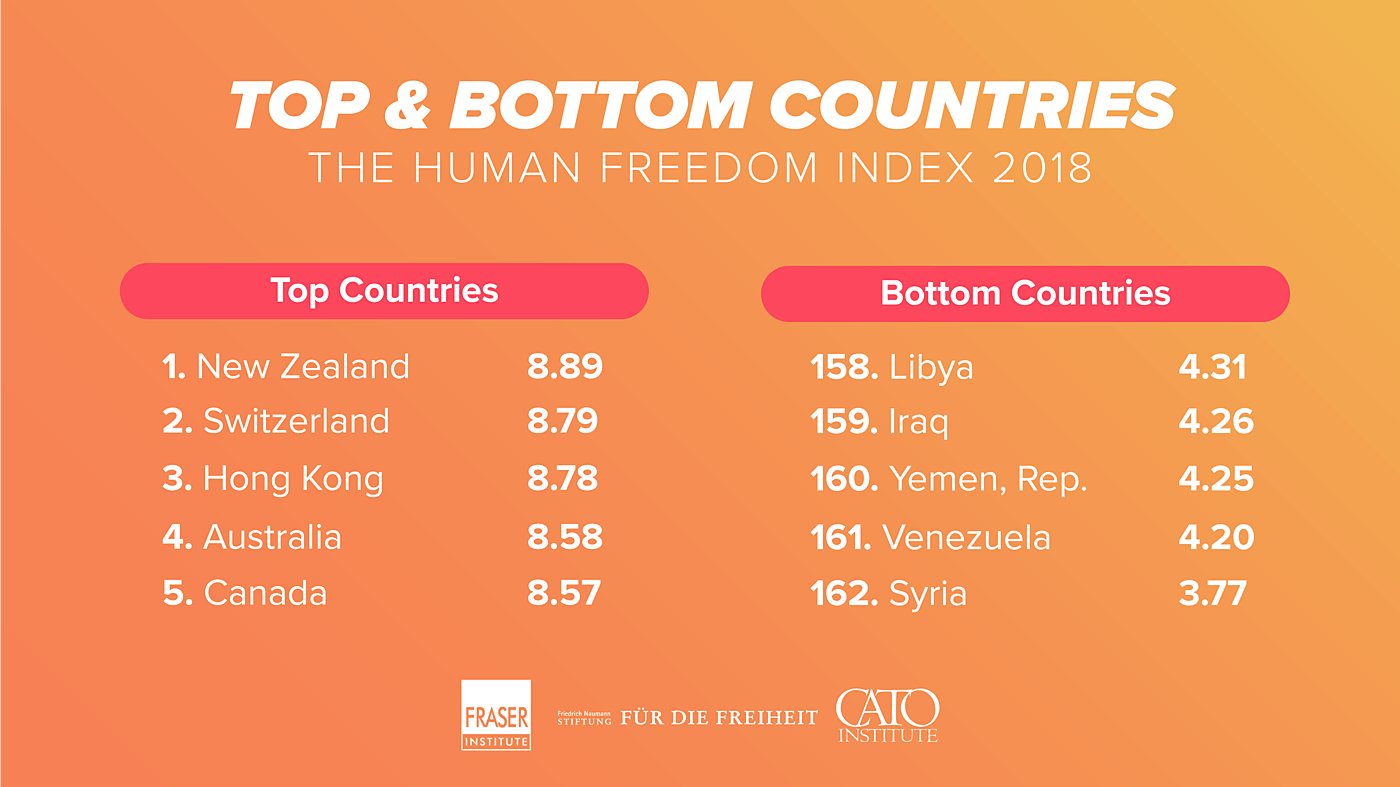Today, on Human Rights Day, we are pleased to release the Human Freedom Index 2018. The report—copublished by the Cato Institute, the Fraser Institute in Canada, and the Liberales Institut at the Friedrich Naumann Foundation for Freedom in Germany—measures a broad array of personal, civil and economic freedoms around the world and the extent to which basic rights are protected or violated.
New Zealand and Switzerland are the two freest countries on this year’s index, while Venezuela and Syria rank last. The United States ranks 17. In 2008, it ranked 11, then fell notably until 2013, after which it rose through 2016, the latest year for which the index gathers sufficient data that is comparable globally.
My coauthor Tanja Porčnik and I unfortunately find that, compared to 2008 or to last year’s report, more countries than not have seen their level of freedom decline. Over that longer period, notable deteriorations occurred in Russia, Hungary, Argentina, and, in more recent years, Turkey. Some of the largest drops in freedom in the world occurred in Greece and Egypt, further reflecting a strengthening of populism and authoritarianism that have afflicted countries on every continent in the past decade.
The good news is that over the long term, freedom has spread to a diversity of countries too, including numerous ex-socialist countries, Latin American nations, one sub-Saharan African country (Mauritius) and several Asian countries that all belong to the top quartile of the freest countries in the index. Many are on the rise, and some, like Taiwan, have seen notable increases in freedom in recent years.
See what broad areas of freedom have seen the biggest gains or declines in the world, where women are least free, the strong relationship between freedom and prosperity, and many more findings in this year’s report.

